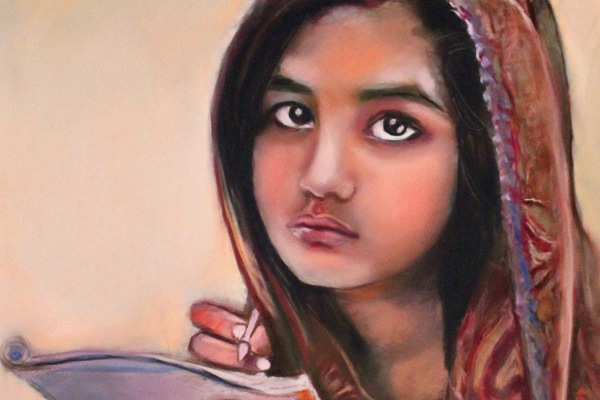 By: Mureed Khan Khattar – September 25th, 2012
By: Mureed Khan Khattar – September 25th, 2012
Rimsha Masih, 11 year old christian girl suffering from Down syndrome and who should have been in the children hospital in her condition, unfortunately, she is behind the bars. Few days ago, Rimsha was arrested from her home in Mehrabadia, suburb of Islamabad (Pakistan). She is accused of burning the papers containing verses of Holy Quran, the denounce was registered against her in the local Police station under section 295-B of the draconian blasphemy law, which deals with the defiling of Holy Quran the maximum punishment under this section is life-imprisonment.
On January 4th, 2011, Salman Taseer, Governor of Punjab was shot dead by his security guard, Malik Mumtaz Qadri, in Kohsar Market F-6 Islamabad. He was accused of blasphemy. Earlier, on November 8th, 2010, a christian women, Asia Bibi, was sentenced to death by the District Court of Nankana Sahib under the act of blasphemy; and later, Maulana Yusuf Qureshi, the prayer leader of Mohabbat Khan mosque announced a reward of 500,000 rupees (5,230 U.S. dollars) for anyone who kill Asia Bibi. In July 2009, the ghastly persecution of christians in Gojra allegedly by Sipah-e-Sahaba, a banned sectarian organization, brought as result nine christians killed, dozens were injured and hundreds were left homeless. These cases have attracted new attention on the blasphemy laws in Pakistan, with different reactions. However, there is a quite a lot that precedes all these incidents in Pakistan, and without a cursory glance at the background, it wouldn’t be possible the present situation in the country.
The blasphemy laws are as old as the Penal Code itself. In 1860, the British enacted blasphemy laws in an attempt to protect the religious sentiments of the people of India by incorporating sections 295 and 298 in the Penal Code; however the draconian blasphemy laws, which deals with various forms of blasphemy with capital punishments were introduced by General Zia ul Haq in 1980’s. The misuse of blasphemy laws started in Zia’s period and has continued until now, after the famous case in which a Hindu publisher, Ram Pal, was murdered by Ilm Din, there were no cases of extra judicial killings in this regard till 1986. However, since 1986, 38 people have been extra judicially killed in Pakistan on the accusations on blasphemy.
In 1993, Salamat Masih, 11 years old, was accused of writing blasphemous remarks on a wall belonging to a mosque, in January 1995 he was sentenced to death by the local session Judge, but later, on in February 1995, he was released by Lahore High court bench based on the evidence that he did not know how to read and write Arabic. The bench included Justice Arif Iqbal Hussain Bhatti and Justice Chaudhry Khurshid Ahmad, there was country wide protest against the acquittal of Salamat Massih by religious groups and later, on 1997, Justice arif Iqbal Hussain Bhatti was assassinated in his chamber in Lahore high court.
Now again, 11 year old christian girl is behind the bars, she is also accused of blasphemy. The imam of the mosque, who fabricated the evidence and added pages of Holy Quran to the burnt refuse, to strengthen the case is also behind the bars. This is the first time in Pakistan that somebody has been arrested for fabricating the evidence in blasphemy case. Nobody knows the future of this young Christian girl, whether she will be acquitted or she will be sentenced life time imprisonment, whether she will be killed extra judicially or the Judge, if he acquits her.
Blasphemy laws are often use to settle personal score by muslims against non-muslims and muslims. More than 50% cases has been registered against muslims by muslims. Blasphemy has become a highly sensitive subject in Pakistan now, but what blasphemy is? And what is not? It is difficult to define, paradoxically, no law can be made without the definition of the offence.
Pakistani society seems to have been divided into two segments: on one hand, the civil society, the religious minorities and similar groups want to get these laws repealed or at least amend; while on the other, the religious elements and the political parties have politicised the issue to that extent, that even talking about blasphemy laws is misconstrued as blasphemy, but due to pressure from various segments of the state and society, no government has been able to amend or repeal these laws despite international calls and condemnations, since Pakistan is signatory member of United Nation Human Rights declaration of 1991, and the laws are against the spirit of the Charter of Human Rights.
Si encuentras un error, selecciónalo y presiona Shift + Enter o Haz clic aquí. para informarnos.

